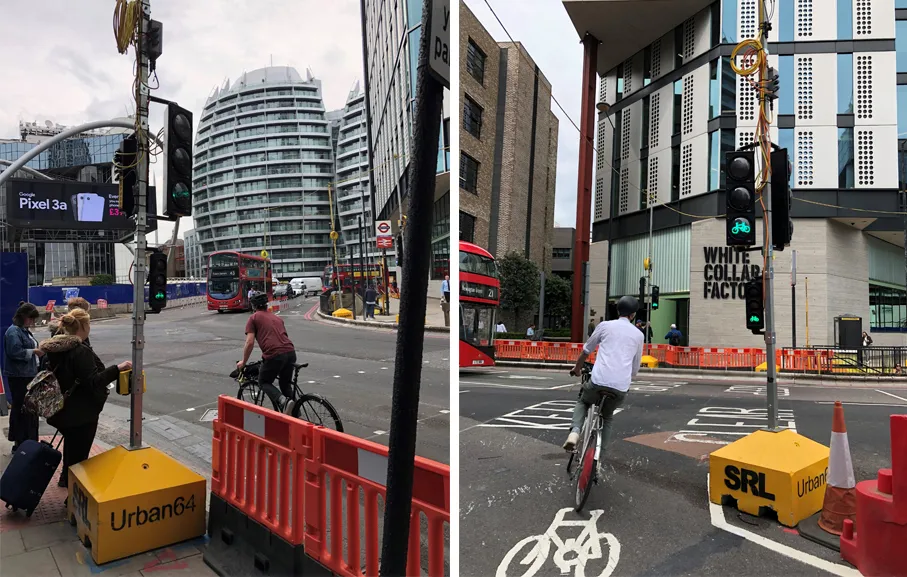
France-based international engineering and project installation group
Bordeaux wants to improve a 700-metre brownfield quayside site from its current status as informal open space to a public park.
The area is currently bounded by a four-lane road consisting of two bus lanes and two lanes for other vehicles. To expand the parkland area, the city wants to reduce the roadway to three lanes, with priority being given to traffic heading into the city in the morning rush hour, then switching to give priority to outbound traffic in the late afternoon and evening.
Two lanes will be designated for traffic travelling towards the city in the morning, with two lanes heading out of the city in the afternoon.
To guide drivers, the roadway will be marked with red lights set into its surface, indicating the changing position of the dividing line between the different directions.
To ease the transition in direction, the central lane will be blocked off to traffic from both directions from mid-morning to mid-afternoon, said Michel Sejalon, Egis’s business development manager, mobility and systems.
“This type of solution already exists on motorways and in inter-urban areas, but it’s a new approach for urban areas,” he said, “We are discussing the concept with the Bordeaux city authorities.”










